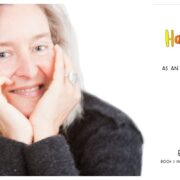The ultimate goal is to outgrow bad habits, not break them — Lionesses of Africa

by Lori Milner
A bad habit is a pattern of behaviour that sabotages you somehow. The language associated with habit change is that you want to start a good habit and break a bad one. Breaking a habit assumes that the problem is with the habit, but really, it’s about your beliefs, triggers and actions about what this habit will give you.
The author of Better than Before, Gretchen Rubin, has the ultimate solution – to outgrow a bad habit. When you outgrow a bad habit, it means you have evolved and grown as a person. You can now see that the behaviour sabotages your current goals and no longer belongs in your life. How do you usually approach a tangled cable or necklace? You don’t break it, but you unravel each knot carefully until you have successfully disentangled it.
In the same way, this is how you need to think about your bad habits. Imagine you want to stop drinking wine during the week because it interferes with your health goals.
Here are seven ways to untangle this habit (of course, insert the habit you would like to stop doing if this does not apply to you):
Identify the trigger
The starting point of dissecting a bad habit is identifying your trigger. What is the prompt that is triggering you to do the activity? It could be a time of day, a location, a situation or an emotion. With the example of drinking wine, could it be because it’s 5 pm, when you arrive at your brother’s house or because you are feeling very upset or stressed? It may be a combination, but one trigger catapults you into action. Can you do a habit audit over the next week to become aware of what triggers you? This behaviour may be so ingrained into your daily routine that it is no longer a decision but a habit. You do it without consciously thinking about it.
Once you can identify the starting point, you can prevent the rest of the domino effect.
Recognise the secondary gain
A secondary gain is any behaviour you want to stop doing that has a positive intent. You want to stop wine, but it makes you feel calm and gives you a sense of control over your world. Although the intent to drink is positive, it is a false sense of control and sabotages your health goals by affecting your sleep and making it harder to wake up to exercise. Identify the behaviour you want to stop and get curious. Ask yourself – what is making this hard to do? What is the obstacle? Perhaps you procrastinate on doing an important presentation. The secondary gain is protecting you from the fear of being judged or not being perfect when you try to tackle the task. It doesn’t have to make logical sense; this is why habits are such an intricate topic. Once you have identified the secondary gain, ask yourself: How would accomplishing this goal meet my needs in a healthier and more empowered way? When you can place your habit under a microscope and get clarity on why you keep it around, you will begin to see the secondary gain for what it is – a false sense of comfort and control.
Find a replacement
You cannot stop a behaviour without replacing it with something else. If you want to stop wine, can you replace it with herbal tea? Not just any tea, go and splurge on some fancy teas and a new teapot. Create a decadent ritual for yourself that you can indulge in by savouring the brewing process. You can even pair the process of drinking tea with watching a TED talk or reading an inspiring book. You will begin to look forward to this new habit rather than feel like a victim who has lost something.
Manage your environment
Habits are not about motivation but design. How can you manage your environment to help you untangle the knots? Can you remove all wine in the house or lock it away in a room until it’s the weekend? Perhaps you need to put a particular food in an inconvenient place, so it deters you from reaching for it? Can you manage the environment of distraction by closing your Outlook and social media feeds when you work? Sometimes you need to manage your digital environment to progress your goals. If you tend to order wine online, delete the app. Perhaps you need to delete social media or shopping apps on your phone if you tend to procrastinate by scrolling for hours? You can also design your environment to create better habits by leaving a jug of water on your desk, replacing a biscuit bowl for apples or leaving a book on your bed? The more you can remind yourself of what habits you want to create, the easier it is to shift your behaviour to make more empowering choices.
Create accountability
It’s human nature that we often do better when we know people are watching. Use the power of accountability to keep you focused on this new change. Tell your family and friends that you no longer drink in the week and ask them to keep you on track. If you find yourself reaching for a glass of wine, you will be out of integrity. It also helps in social settings where you feel compelled to drink to avoid being the odd one out. The more you can assert your choice with confidence; the more people will respect your decision. Marshall Goldsmith, the author of Triggers, suggests the power of self-accountability to drive you in the direction of better decisions. He recommends keeping a journal with accountability questions you need to answer each evening by giving yourself a score out of 10.
Here are some examples:
· Did I do my best to make progress toward my goals today?
· Did I do my best to find meaning today?
· Did I do my best to be happy today?
· Did I do my best to build positive relationships today?
· Did I do my best to be fully engaged today?
· Did I do my best to have a healthy diet?
Eventually, you will detest answering anything less than a seven and make sure you take actions that catapult you to a 10.
Celebrate your wins
Every time you choose your cup of tea over the wine, celebrate yourself. Acknowledge that you interrupted your pattern and made the hard choice.
Celebration could be patting yourself on the back, doing the floss dance or imagining confetti falling from the ceiling. Have fun with this but make sure you recognise your progress. It is more than making yourself feel good but acknowledging that you are shifting and letting go of behaviours that no longer serve you. You have to internalise who you are becoming on the journey, so it is part of who you are when you reach your goal. The lack of recognition of your achievements is why imposter syndrome is rampant. If you disregard every milestone along the way, you feel like everyone will figure out you know nothing when you finally attain your career goal.
Celebration allows you to develop the ultimate habit – self-praise. When you can accept praise from yourself, it is easier to accept it from others. Courage supersedes confidence; it recognises your progress and growth that gives you the confidence to keep going and tackle larger goals in the future.
Embrace your new identity
James Clear, the author of Atomic Habits, says that true behaviour change is identity change. You need to let go of the version of yourself that no longer serves you. Have compassion for your former self. Rather than resent them, thank your former self because this habit served a purpose and made sense at that stage of your life. Now that you are wiser and more experienced, you can see that this pattern sabotages your new goals. You made this choice in a different life stage and with different circumstances. Can you have compassion for your former self’s choices and step into your new identity? Decide who you want to be and begin to act in alignment. The process of creating and untangling habits is the process of becoming yourself. Every time you choose the tea, it reinforces your identity as a strong, healthy, more evolved person. You no longer need to identify as a stressed person but someone who makes decisions in their own best interest because you are worth it.
Final thoughts
One of my favourite quotes is from entrepreneur Derek Sivers, which sums up habits so perfectly:
“If [more] information were the answer, then we’d all be billionaires with perfect abs.”
There is always a gap between knowing what you should do and making the right decision in the moment. Mastering your habits is personal mastery – understanding your goals, thoughts, beliefs and patterns. In other words, why do you do what you do? When you begin to see your habits as a science lab, you can experiment with non-attachment. Like the necklace, you have to work through it slowly. If you get impatient, you can break it.
Habits operate on the same principle; you need to work through this change with patience and self-compassion. It may take longer than you want, and you will make mistakes now and then. Rather than give up completely, see your day in micro-choices and make sure the next choice is a better one.
Use this checklist to help you outgrow the habits that no longer belong in your life:
· Identify the trigger.
· Recognise the secondary gain.
· Find a replacement.
· Manage your environment.
· Create accountability.
· Celebrate your wins.
· Embrace your new identity.
Here’s to becoming the best version of yourself
Warm wishes
Lori


















